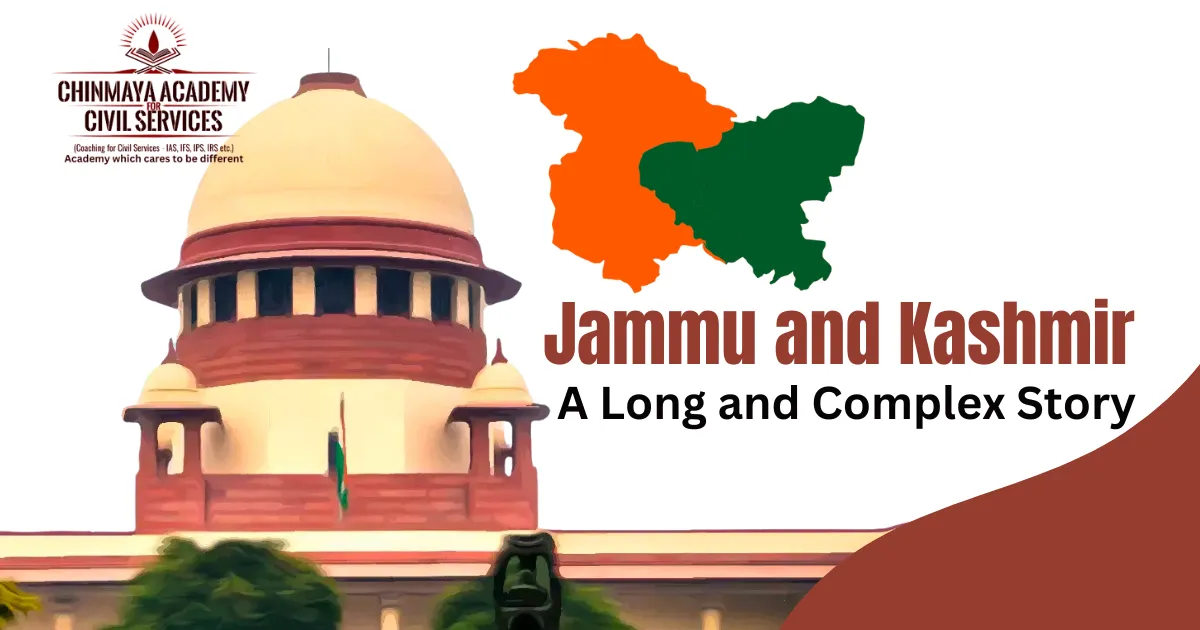
Jammu and Kashmir boasts a rich and complex history spanning millennia, marked by diverse rulers, religious influences, and political upheavals. Here’s a brief overview of key historical events:
Ancient Times (3000 BC – 13th Century AD):
- Indus Valley Civilization flourished in the region, leaving behind remnants in Burzahom and Gufkral.
- Buddhism and Hinduism took root, with numerous temples and monasteries built across the region.
- Various dynasties ruled over Jammu and Kashmir, including the Mauryan, Kushan, and Karkota empires.
Medieval Era (13th Century – 18th Century):
- The Delhi Sultanate and Mughal Empire held sway over the region, introducing Islamic influence and architecture.
- Sufi saints played a significant role in spreading Islam and promoting religious tolerance.
- Local Rajput kingdoms like Kishtwar and Poonch emerged and flourished.
Sikh Rule and Dogra Dynasty (18th Century – 19th Century):
- Sikh Empire conquered Kashmir Valley in the 18th century, introducing Sikhism to the region.
- Following the First Anglo-Sikh War, the British East India Company sold Kashmir to Raja Gulab Singh of Jammu, forming the princely state of Jammu and Kashmir.
- The Dogra dynasty ruled the state for over a century, witnessing economic progress and infrastructural development.
British Raj and Partition (19th Century – 1947):
- British paramountcy over the princely state led to social reforms and modernization initiatives.
- However, the rule also faced growing resentment and calls for independence.
- With the partition of India in 1947, the Maharaja of Jammu and Kashmir initially opted to remain independent.
Kashmir Dispute and Independence Movements (1947 – Present):
- Pakistani tribal forces invaded Kashmir, leading to the First Indo-Pakistani War.
- The Maharaja acceded to India, but the territory remained disputed, with Pakistan claiming Kashmir.
- Several wars and conflicts, including the Indo-Pakistani Wars of 1965 and 1999, have been fought over the region.
- Kashmiri separatist movements continue to demand self-determination or independence.
Present Status:
- Currently, Jammu and Kashmir is a union territory administered by India, with a special status under Article 370 of the Indian Constitution, revoked in 2019.
- The region remains a disputed territory, claimed by both India and Pakistan.
- Political instability and violence continue to plague the region, posing immense challenges to peace and development.
Recent Verdict
The Supreme Court’s J&K Verdict: Impacts on the Rights of States
The Supreme Court’s 2022 verdict on Article 370, abrogating Jammu and Kashmir’s special status, has sparked significant debate regarding its implications for the rights of states in India. This verdict presents a complex scenario, with both potential benefits and drawbacks for the federal structure of the country.
Potential Negative Impacts on State Rights:
- Centralization of Power: Critics argue that the verdict strengthens the central government’s power at the expense of states, upsetting the delicate balance of power envisioned in the Indian Constitution. This could lead to greater control by the central government over state affairs, potentially impacting their autonomy and decision-making.
- Erosion of Federalism: The abrogation of Article 370, which granted J&K special status and autonomy, is seen by some as a weakening of the federal principle enshrined in the Constitution. This could set a precedent for the central government to unilaterally alter or revoke other provisions granting autonomy to states, ultimately undermining federalism.
- Loss of Trust and Confidence: The manner in which Article 370 was revoked, bypassing the state legislature, could erode the trust and confidence of other states in the central government. This could lead to increased friction and tension between the centre and states, hindering cooperation and collaboration.
- Uncertainty and Ambiguity: The long-term implications of the verdict remain unclear, creating uncertainty and ambiguity among states regarding their own autonomy and the extent of the central government’s authority. This could lead to legal challenges and disputes, further impacting the federal structure.
Potential Positive Impacts on State Rights:
- National Security: Proponents of the verdict argue that it was necessary to address national security concerns and combat terrorism in Jammu and Kashmir. By integrating the state more closely with the rest of the country, they believe national security can be strengthened.
- Uniformity and Integration: The removal of J&K’s special status promotes greater uniformity and integration with the rest of India. This could improve administrative efficiency, simplify legal procedures, and facilitate economic development for the region.
- Promoting Development: Supporters believe that removing J&K’s special status will create a more conducive environment for development and attract investment to the region. This could lead to increased job opportunities, improved infrastructure, and better living standards for the people of J&K.
- Transparency and Accountability: The integration of J&K could lead to greater transparency and accountability in governance. By applying the same laws and regulations as other states, the central government can ensure that J&K is subject to the same level of scrutiny and oversight.
Conclusion:
The Supreme Court’s verdict on Article 370 has undoubtedly sparked controversy and concerns about its potential impact on the rights of states in India. While there are legitimate concerns about the centralization of power and the potential erosion of federalism, it is important to acknowledge the potential benefits of closer integration and development for Jammu and Kashmir. Ultimately, the long-term impact of this verdict will depend on how it is implemented and how effectively the central government manages the delicate balance between national security, development, and the autonomy of states.
 Chinmaya IAS Academy – Current Affairs Chinmaya IAS Academy – Current Affairs
Chinmaya IAS Academy – Current Affairs Chinmaya IAS Academy – Current Affairs